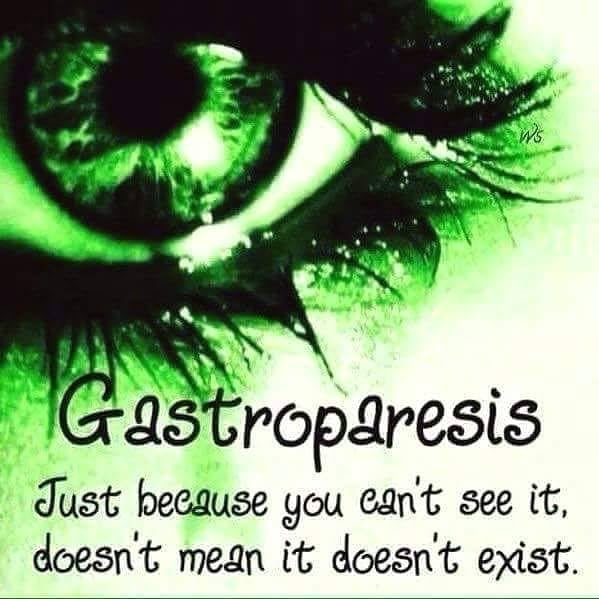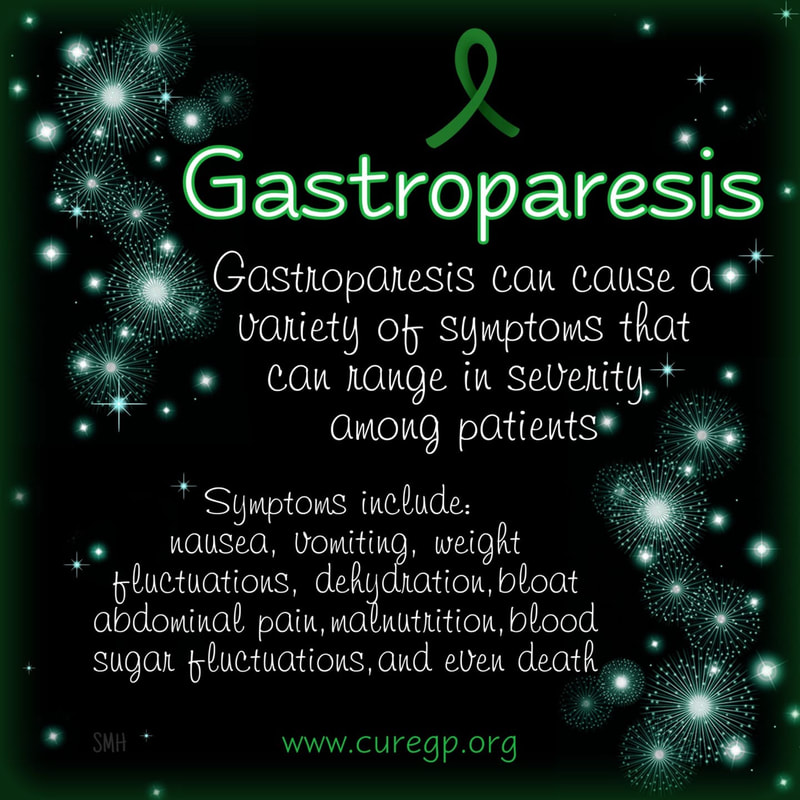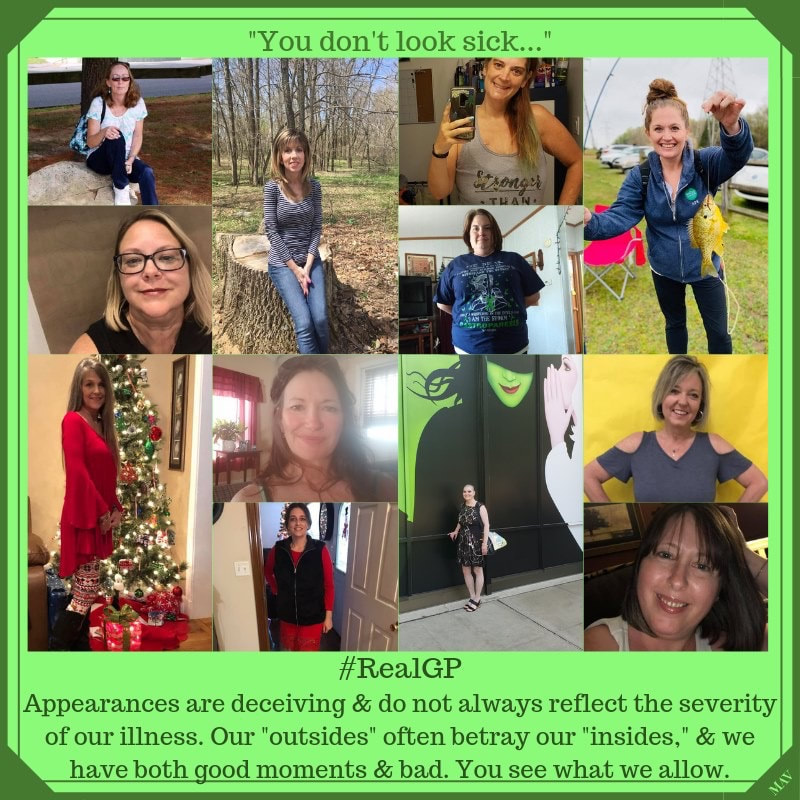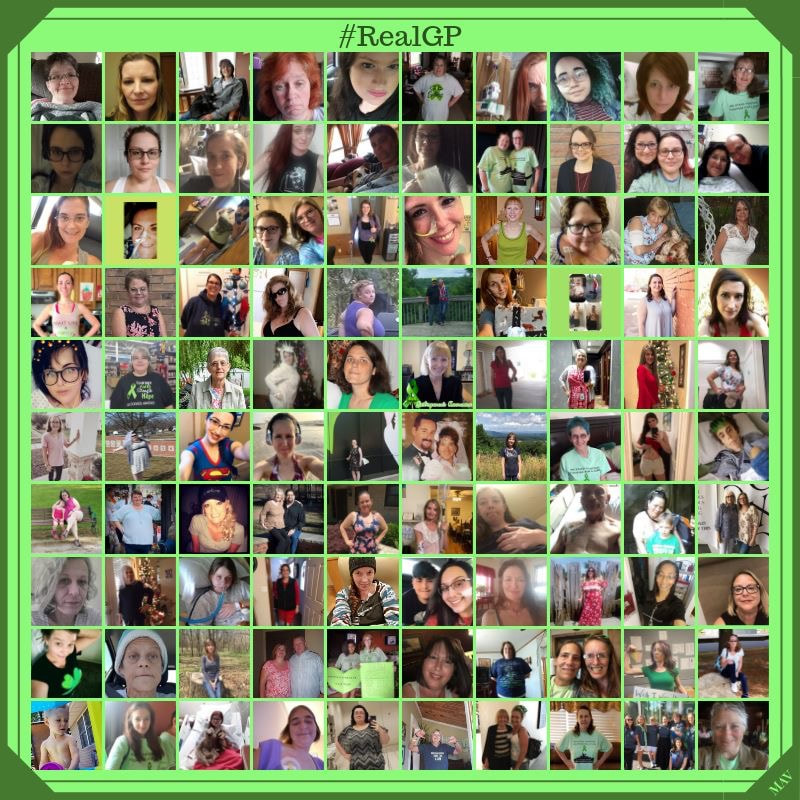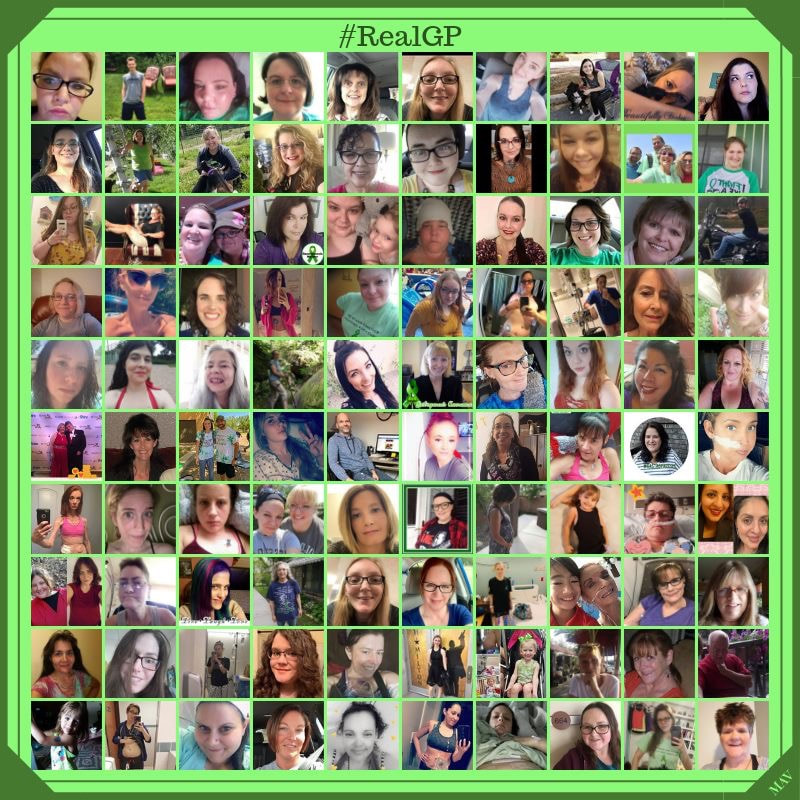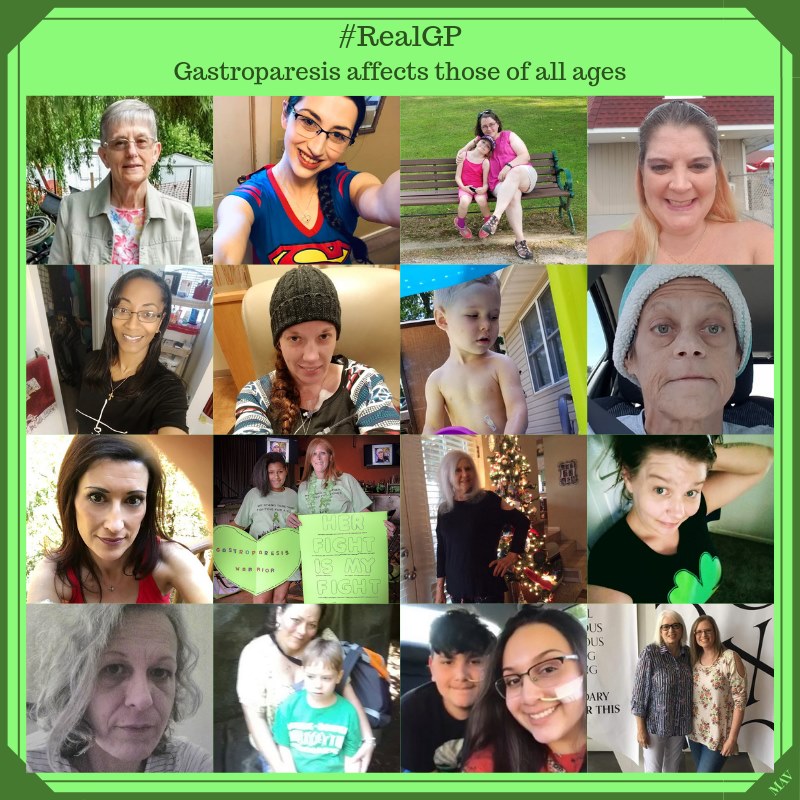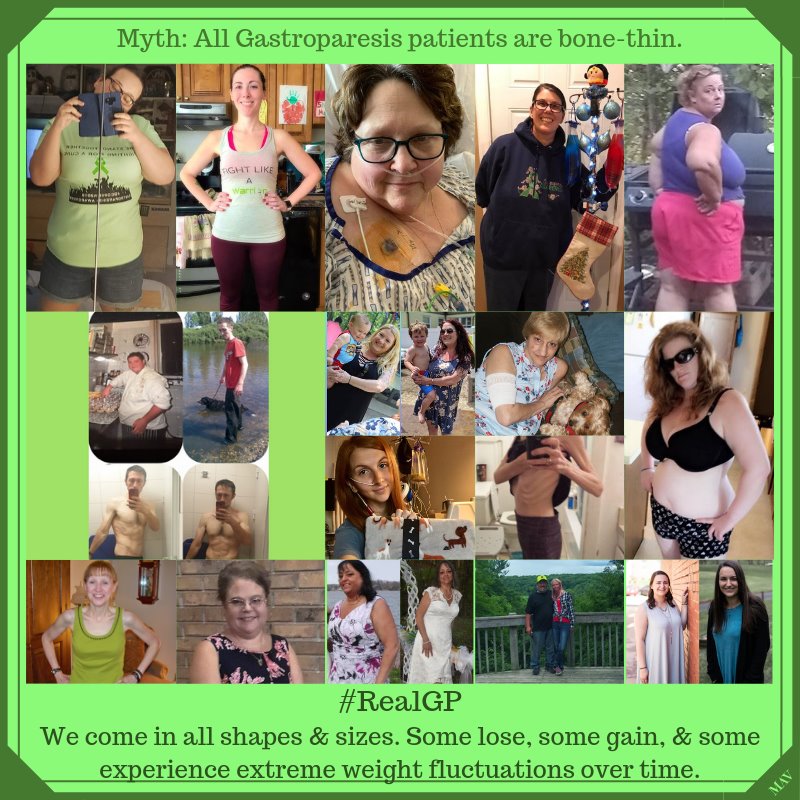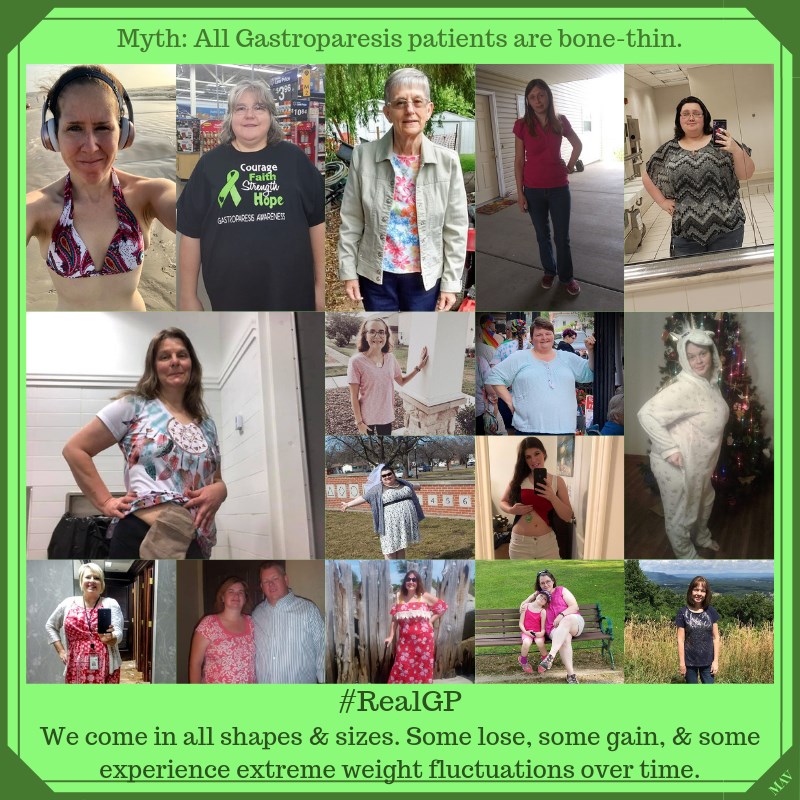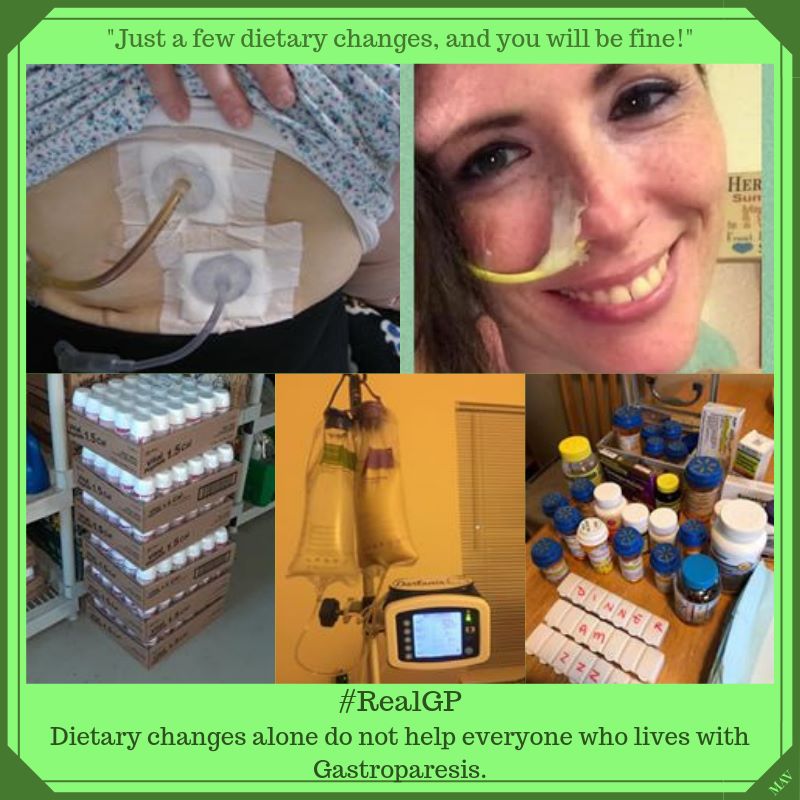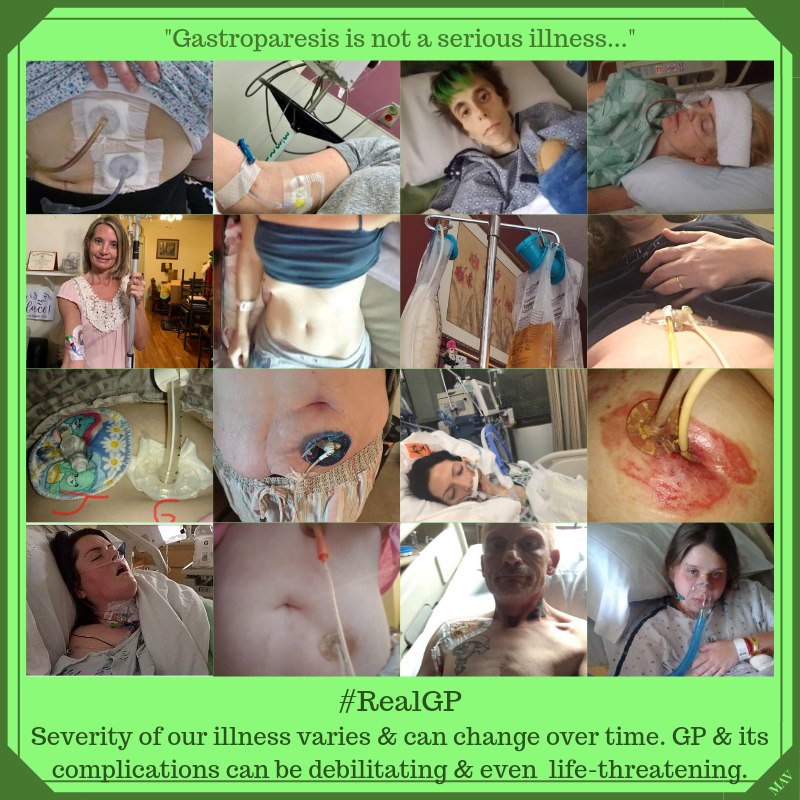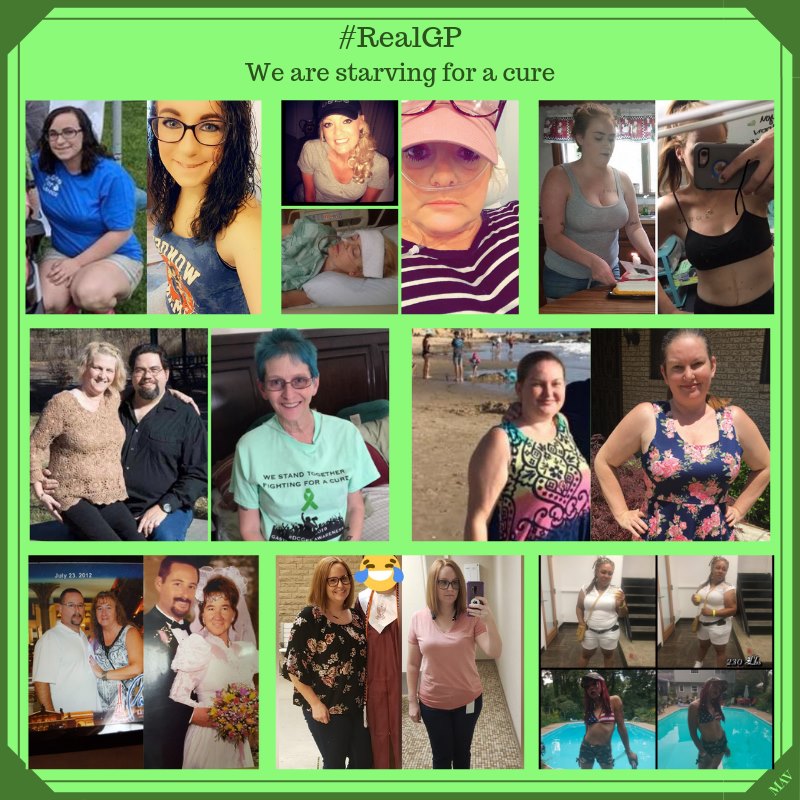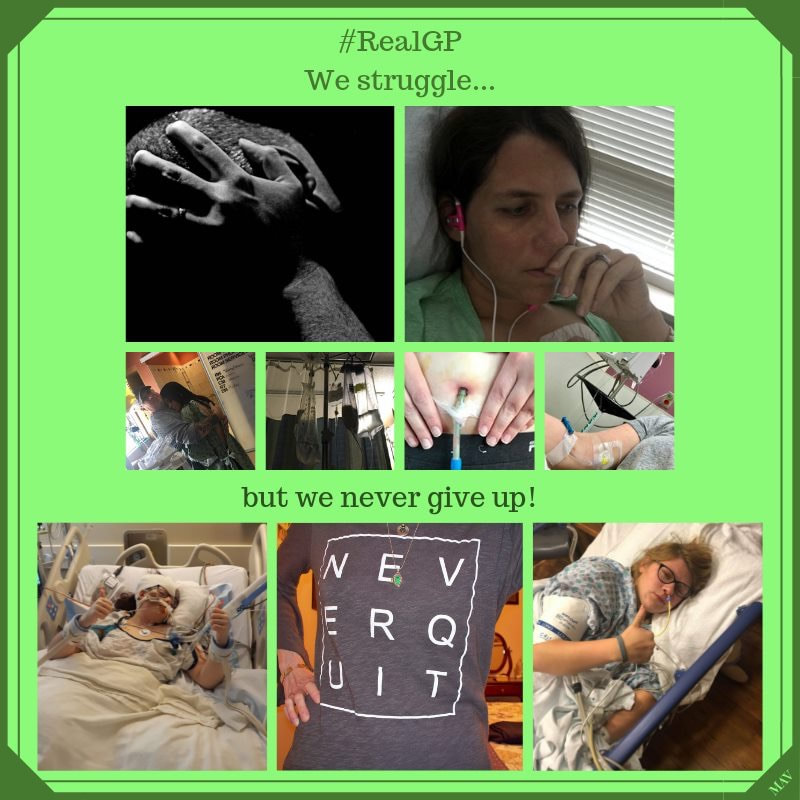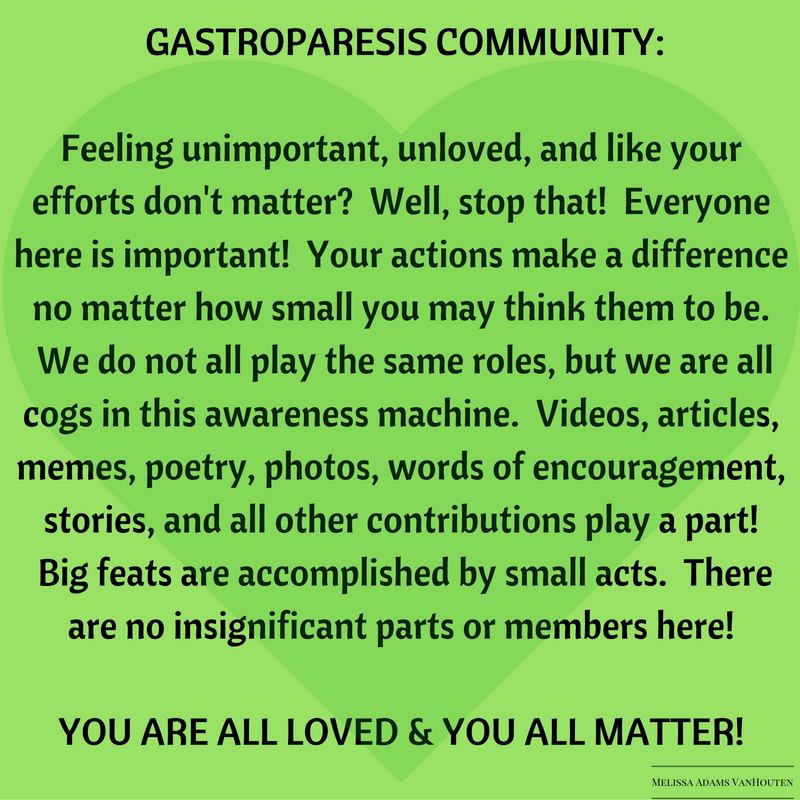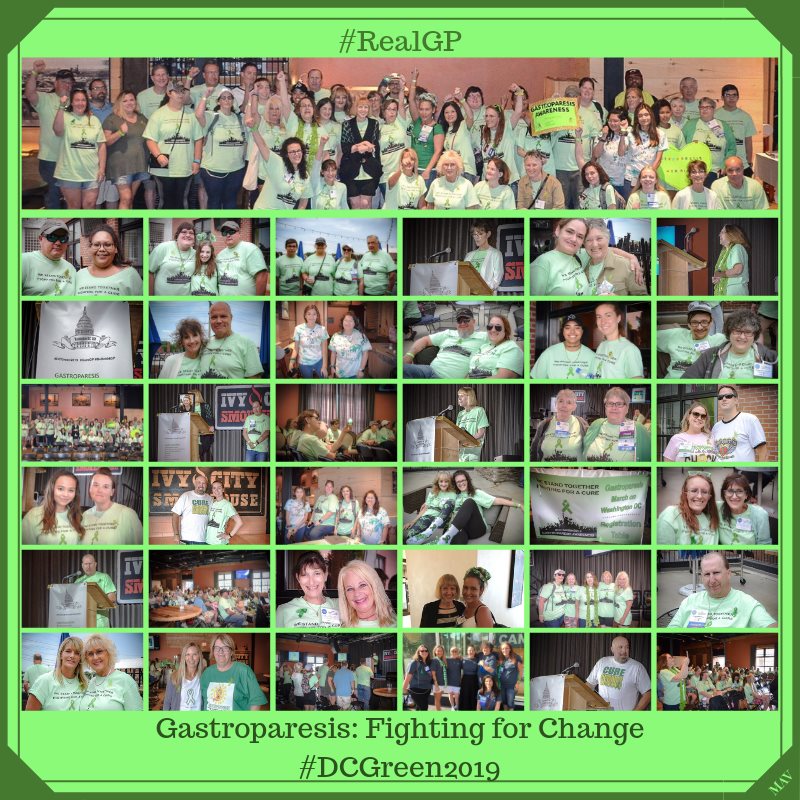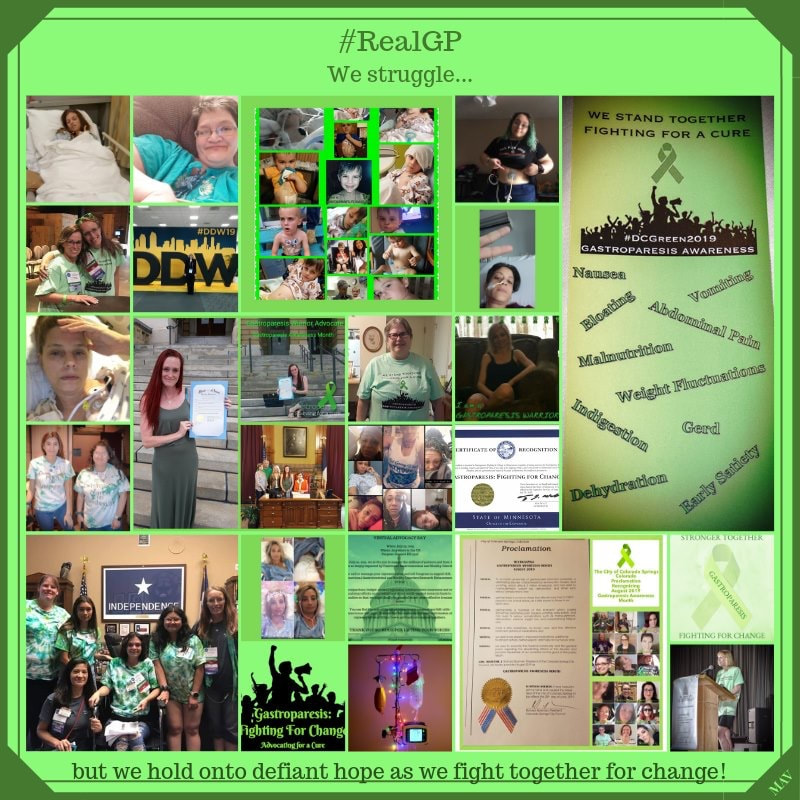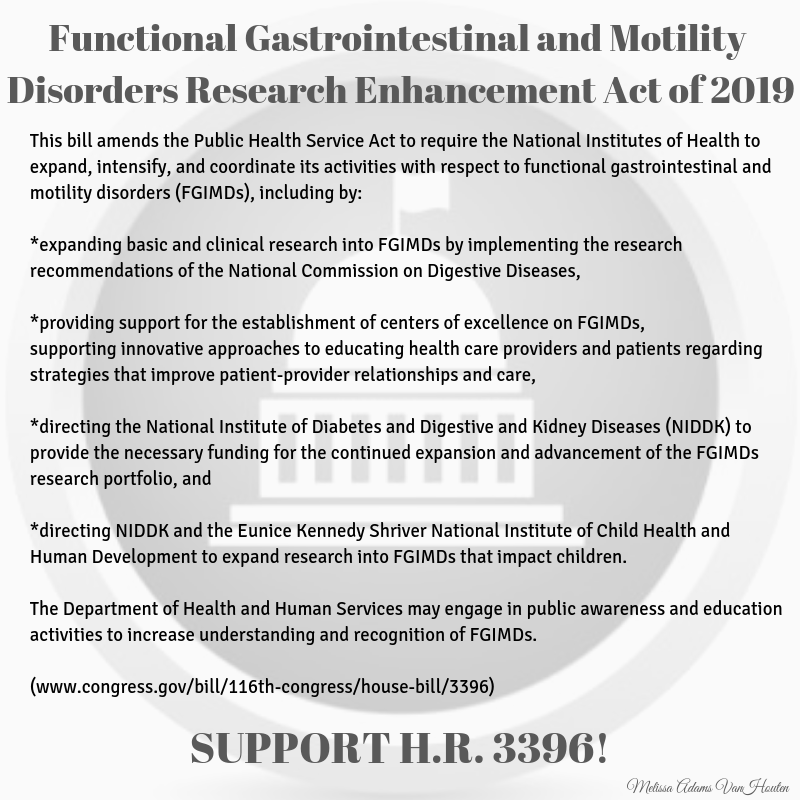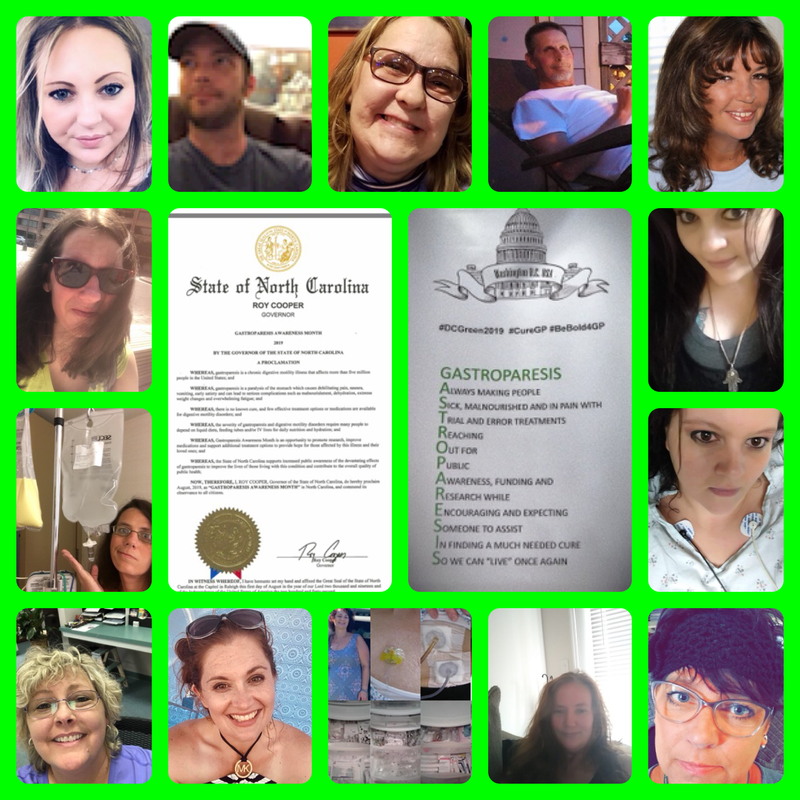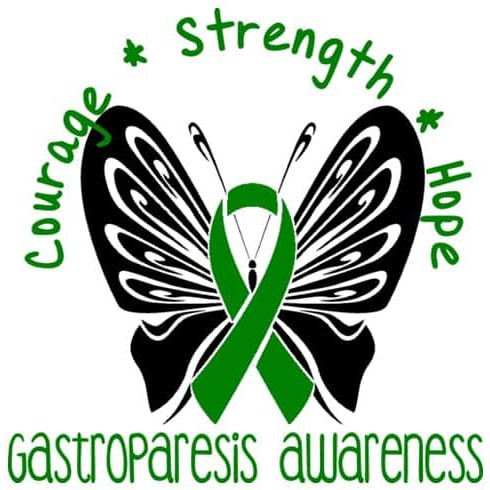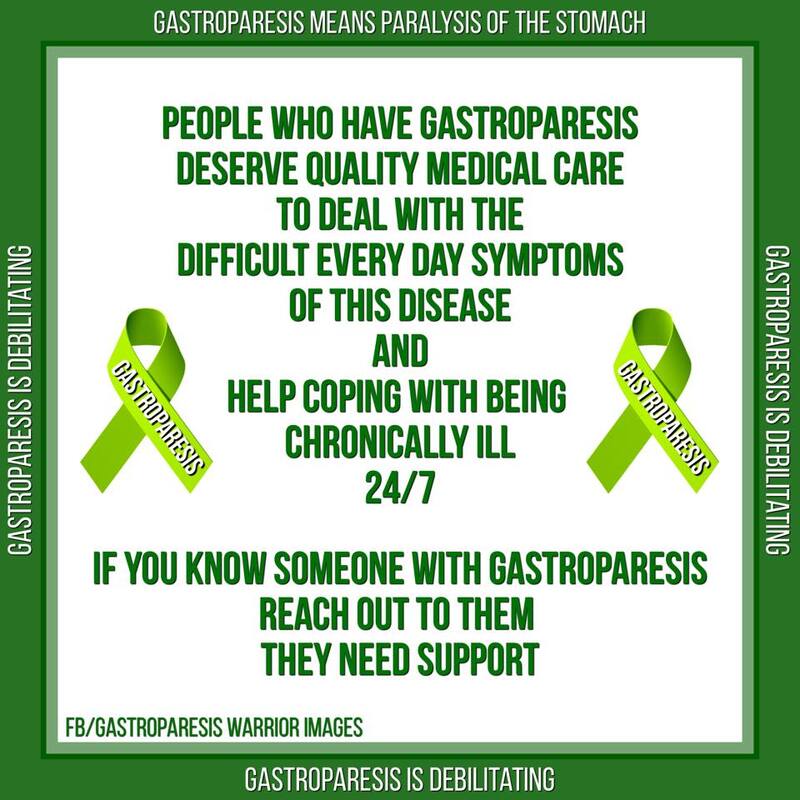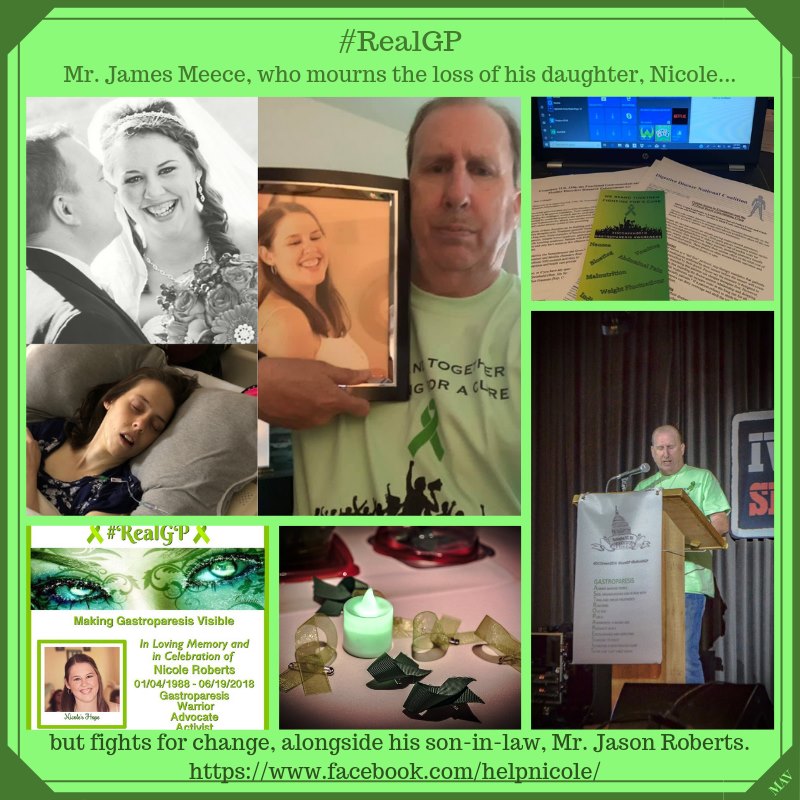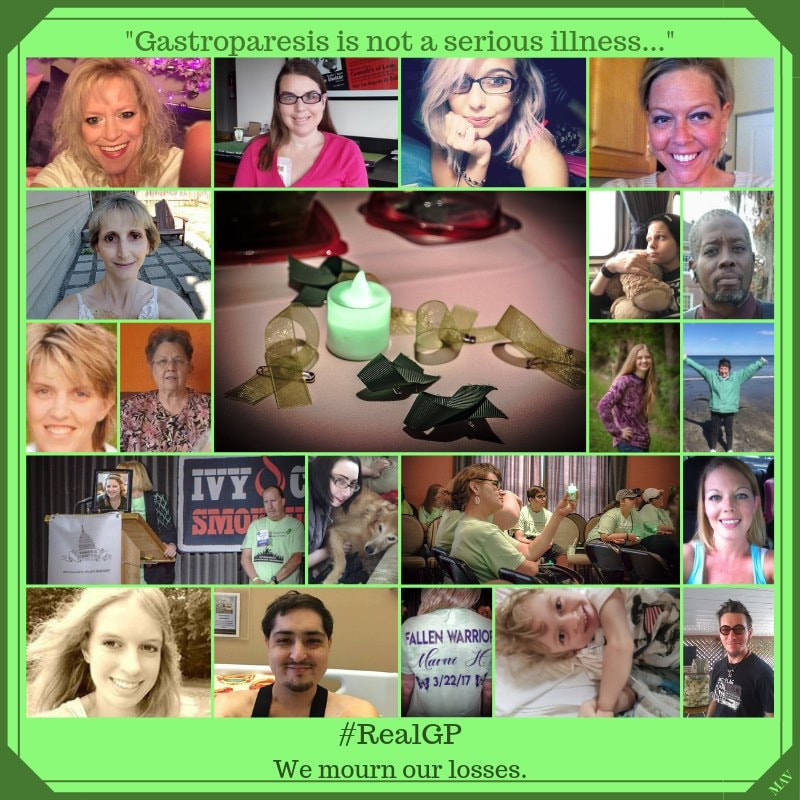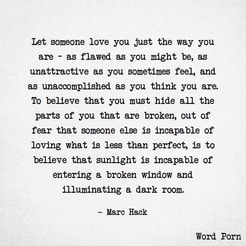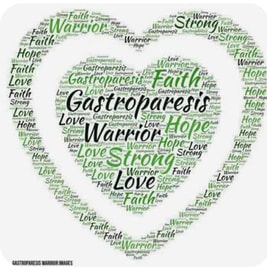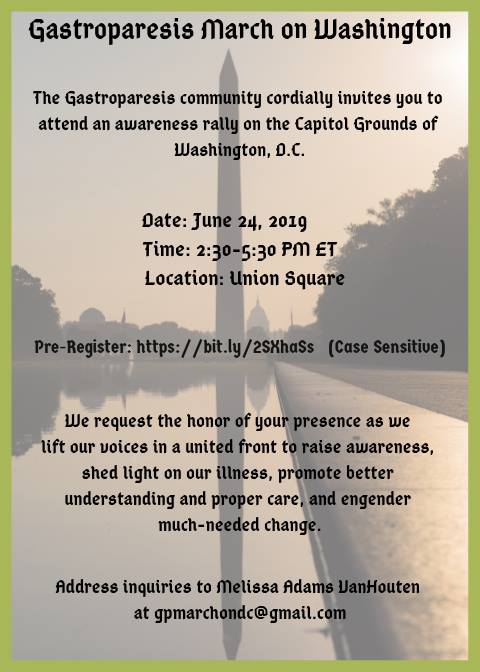 The Sacrifice, written by my daughter Carmen, was published on Amazon in May 2020. This is her 2nd fictional novel that has been published. In her latest book, the main character becomes sick and eventually diagnosed with gastroparesis. Carmen does a fantastic job describing the ordeal that someone with gastroparesis may go through prior to, during, and after being diagnosed. While Eden, the main character, learns more about what's going on with her medically and how to best deal with it, she is faced with additional (non-medical) life problems as well. Through it all she tries to rely on family and friendship, while also learning more about herself. THE SACRIFICE is a fictional, creative, and emotional read. While much of the book is realistic, including the gastroparesis descriptions, there are also some unexpected twists and an element of supernatural in this book as well. Carmen’s description and details throughout the book are so vivid that it’s easy for the reader to believe they are actually there among the characters, I know I did. About her writing, Carmen states, "I never thought that I would be the one to write books while I was still a kid. But here I am with my second novel. I have always enjoyed writing for the most part, but during the past few months, I am truly starting to realize that I have a passion for writing. When I was just nine years old, my life completely changed. My mom was diagnosed with gastroparesis. I didn’t know what to do, or how I could help her, when she was always feeling horrible and in the hospital. With family by my side, I learned a lot throughout that year, and continue to learn more things each day. At times, I’ve felt like everything was pouring down on me, but didn’t really know how to handle it all. I eventually learned how to open up to my family and lean more on my faith. My goal is to use my writing and experiences, along with creativity, to spread messages of encouragement to others. I was inspired to write THE SACRIFICE because it describes the struggles teenagers can have when living with or trying to survive chronic illness and family challenges. The disease, gastroparesis, that I included in this book is the same disease that my mom has been living with. I may not have the disease, and I may not be able to feel the pain that my mom does, but I see the pain that she goes through every day in my life, and that gives me the ability to relate to it. This book is fictional and has some unexpected twists, but also expresses to the reader that you can make it through whatever troubles you are going through and you should embrace what life gives you. I hope that everyone who reads this book learns something from it as well." Summary of THE SACRIFICE: “Eden is a seventeen-year-old girl that is enjoying her last summer before senior year, but an unexpected curveball gets thrown at her with a life-changing disease. Her twin brother, Bennett, and best friend, Carter, stay by her side, but once a tragedy happens, she begins to feel the pain that she never imagined having. One letter ends up being the mystery that she wishes she never opened up. Will she be able to find closure, or will she give up on everything that she's ever worked for?” You can purchase your ebook or paperback copy of THE SACRIFICE from Amazon now!! https://www.amazon.com/dp/B0892DJV6G/ref=cm_sw_r_tw_dp_U_x_12-0EbYPCRE Carmen’s first book, UNBREAKABLE, is also available on Amazon.
0 Comments
At the end of July, I was hospitalized once again for a central line bloodstream infection. I had a PICC line at the time so I could stay hydrated. My regimen was to infuse 1.5 liters of IV Lactated Ringers 3-4 times a week. Out of the blue, on July 26 and 27th, I started having severe muscles spasms throughout my body, rigors that had my body shaking uncontrollably, and intense chills that sweatshirt, heating blanket, and heating pad couldn't even touch. The first time this happened on Friday night was scary, as every time I've had these symptoms, I've ended up hospitalized for central line blood infections. I tried to avoid and find excuses of what else may have been to blame for how I was feeling, as an infection and another hospitalization was the last thing that I wanted. When it happened again on Saturday night, I knew the possibility of an infection was becoming evident, so I reached out to my GI doctor. Sunday, I finally gave in and visited the dreaded emergency department. As I explained my symptoms, I felt absolutely horrible. I made them aware that previous central line infections have been the source of these awful symptoms in the past. In addition, I went ahead and let them know that both my GI and I felt as if blood cultures needed to be drawn. They followed the suggestion and also took additional labs, which led to chest x-rays and a CTa. Because of my previous infections, they felt it best to keep me overnight in the observation unit. The admitting doctor expressed how confident she was that I did NOT have an infection this time. She thought it was probably just a little virus, as I was not running a temperature and not in distress while there. I responded to her by telling her that I hope she was right, but from my experience, it was likely going to be an infection. The following morning, I learned that my cultures were indeed positive for klebsiella, both from the line itself and from the peripheral (arm) draws. A hospitalization and PICC removal was in my future, along with a difficult decision. Due to my susceptibility of infections, my hospitalist, the infectious disease team, and my personal gastroenterologist all felt that not replacing a central line would be in my best interests. Having a new line was more life threatening at the current time that battling dehydration daily. This time, I had no rebuttal as my body and mind is tired of fighting infections. My family and I agreed that I would attempt to be creative and find a new way of receiving hydration. Unfortunately, my body is not as cooperative as it needs to be. We started implementing more fluids in the hospital by flushing 200 mL of saline 3 times a day through my g-tube. EPIC FAIL as nausea, heaving, and abdominal pain was too much. Then we tried it through the J tube, which was better, but still too problematic. The first flush of the day was manageable, the other 2 were not. After those attempts, we decided to try unflavored pedialyte on a slow drip through my J tube overnight. We set the pump for 20 mL/hr of pedialyte for 10 hours (200 mL total) and during the day continued to run my Peptamen AF formula at a rate of 35 mL/hour. This has been tolerable for the most part, though I have had to adapt the times a little and still have to figure out how to convince my body to accept more formula and fluids as I'm currently only receiving a max of 500 - 600 calories a day and much less than 1.5 Liters of fluids, which is the ideal and recommended amount. What does this mean? Basically, I am staying dehydrated around the clock, but thankfully not enough to require a hospital visit. I feel lightheaded, weak, nauseated, crampy, everyday and am having issues with headaches/migraines, dizzy spells, breathlessness at times, and tachycardia episodes. Regardless of how I feel, I'm having to make myself feel worse by pushing the level I can tolerate so I don't become too dehydrated or malnourished. My medical team and I have to keep a watchful eye on how my body is tolerating the decrease and lack of fluid volume. On a positive note, my body can at least remain free from another central line infection for the time being. Gastroparesis is a chronic invisible illness that impacts every aspect of our lives. We may appear "fine" on the outside, but what we deal with every day on the inside is NOT. Gastroparesis doesn't discriminate by age or size. Some will lose a lot of weight, some actually gain. A change in one's food diet may help improve symptoms for some, some are able to get by on liquid and/or pureed diets, and others require tubes and lines to receive their hydration and nutrition. We struggle to find better treatments and improvements in our quality of lives. We advocate for change, because we don't want others to have to endure what we have. We form online friendships that become very dear to us. Our connections help us support one another during most challenging times, celebrate achievements, and unite to make a difference. We are saddened with each green candle as we miss the ones that pass away, fear the loss of additional friends in the near future, and worry about our own path as we experience similar health stories of those we lose. Advocacy helps keep their memories and spirit alive in our hearts. Special thank you to Melissa Adams Vanhouten, Shanna Harjo, Corina Castillo, and all of the Gastoparesis: Fighting for Change Advocates that helped with creating and sharing these and many more collages, memes, and personal stories for awareness this past month as well as other times throughout the year.
I saw this on Twitter today. It touched me and made me reflect on how chronic illness can impact the ways that we see and think about ourselves.
Most of us know what it’s like to feel broken or question your worth. Having a chronic illness, whether it’s invisible or not also can have that effect. Constantly in pain, fatigued, nauseated, and so much more can bring those flaws right before your eyes and keep them there. It is not our fault, we are not responsible for the illness, but it takes so much away from us and can make us question everything!! I know it has me time and time again. Do I have worth? Absolutely & so do you! But believing that and feeling that when the smallest action takes so much out of you, when treatment plans just don’t work the way you (and others) hoped they would, when careers are lost, when vacations and family events are missed that you really wanted to attend, when no one understands how much you hurt or how rotten you feel, when you think you HAVE to hide how you feel day in and day out because you can’t stand to see your loved ones worry or hurt, when you feel so awful that you have no chance of hiding it but also don’t have the words to describe, when you look down to all of the medical scars and machines doing what your body no longer can, can make it feel nearly impossible. Regardless - you are special, unique, loved, and important. You still deserve to be loved, broken pieces and all, just as you are. Not only by others, but even more importantly loved by you. Allow yourself to be loved just as you are. (And yes, I’m keenly aware it’s much easier said than done.) It's difficult to communicate to others, including to our families and ourselves, that there is no fix or cure for this awful disease, at least not yet. Depending on your individual cause, improvement may be found when the reason (other illness) is effectively managed. For the rest of us, at the moment anyway, it is all symptom treatment and management. Medicines to treat, or minimize, some symptoms that can in return create horrible side effects. Medicines to treat the side effects that were created by the medicines we were taking in hopes of alleviating symptoms. Surgery interventions that make us face a risk of making our illness worse in the off chance that it may possibly help use improve. I admit, I get frustrated with myself and others at times because I'm doing everything that I'm supposed to do, yet still sick. I know that too many of you can relate.
Everyday, I deal with troublesome symptoms. I used to be an active mother and teacher, a career I absolutely loved, but unfortunately had to eventually resign from due to my health. The evening of February 16, 2013 I went to bed as a "normal" 35 year old and woke up the following morning to an unexpected life of chronic illness. One where food was no longer a pleasure, but instead a nightmare of pain, nausea, and vomiting. I spent months unable to eat anything at all, in and out of ERs and doctor offices dehydrated, in pain, and in need for someone to listen to and actually willing to help me. However, I was unable to find any answers or relief with the exception of IV fluids, usually accompanied with blame for allowing myself to become dehydrated. According to them, I just needed to drink more water, what they didn't understand was I couldn't take in anything without drastic debilitating symptoms. It took numerous different doctors and two hospitals before I FINALLY found someone that understood the reality and severity of my health issues, took my condition seriously, and admitted me for the first of many hospitalizations. Even today, I still fear meeting new doctors as a result of some of the negative, degrading, and hopeless experiences I have been through. Thankfully, through determination and God's grace, I currently have an awesome medical team of doctors that authentically care about me, my quality of life, and that I can actually feel comfortable with trusting. At this time, the majority of my nutrition literally enters my small intestines through my GJ feeding tube I've had since 2013 and then exits my small intestines through the ileostomy that I've had since 2016, when I had my colon removed due to colonic inertia. Due to chronic dehydration, I have had a few PICC lines and PORTS. Both are types of central lines that are threaded through a vein to the entrance of the heart, but differ in the location they are placed and how they are accessed. I, personally, have a PICC right now to infuse Lactated Ringers at home throughout the week and for a couple of iron infusions when I am anemic. (Other people may use central lines for things such as saline hydration, TPN, antibiotics, and/or chemo.) Having central lines can most definitely be beneficial but also come at a great risk for central line blood infections and sepsis. I have been hospitalized numerous times for infections that required removal of my line, broad course antibiotics while inpatient at hospital for at least a week, sometimes longer, and then having a new line placed. I have had friends, likely you have as well, that died as a result of central line bloodstream infections. It is a scary risk, but necessary for some in order to have any kind of quality of life. Daily I deal with pain, nausea, and fatigue. The majority of all of my health problems can be labeled as chronic GI motility disorders, (recently being rebranded as Disorders of Gut-Brain Interaction by Dr Drossman and the Rome Foundation). The Research Enhancement Act is a bi-partisan bill that we are currently trying to have co-sponsored and passed in the House of Representatives. It is also known as H.R. 3396. If passed, it can help increase research and awareness for GI motility disorders including but not limited to gastroparesis, colonic inertia, GERD, achalasia, and pseudo-obstruction. Even if our problems are not cured in the immediate future, better awareness, more effective treatment options, and improved understandings of the causes and impact of these illnesses on our lives and our family's lives can. Our successful #DCgreen2019 Gastroparesis March on Washington patient rally, our Facebook live Virtual March on Washington event, and our attendance and participation in legislature meetings with IFFGD (International Foundation for GI Motility Disorders) at their Hill Day event show that together we can, and will, make our voices heard to make a difference. In closing, I want to encourage each of you to never give up. Keep advocating for yourself and/or your loved ones. Find a doctor that is right for you. If you're not getting answers or aren't satisfied with the care that you are receiving, keep searching. You know your body best. When plagued with chronic illness we learn very quickly how important it is to actually create a medical team, one that knows and understands us and wants to work WITH us on devising the most effective plan for our personal best quality of life. Communication, empathy, and compassionate care are all beneficial along with medical knowledge. Learn from your experiences, allow them to make you stronger. Remember you are NEVER alone. You will have difficult days, we all do. You may have days that you feel like giving up, I know I have. And that's okay! If you need to take it one day, one hour, or heck even one minute at a time - do so. B-R-E-A-T-H-E. Reach out for a supportive hand or a sympathetic ear when needed. Nothing is wrong with that. There's a whole community of people that care for you and are here for you, whether it's family and friends nearby, ones you connect with online, or both. I promise you are not alone. On more tolerable days, if possible, offer helping hands or ears to others. It doesn't matter if it's in person, by mail, over the internet, or by phone. Small actions can make a positive difference in someone else's day or even life, just like they can for you. Find a way to have your voice heard. Whether it's by social media, writing, talking, attending conferences or events, contacting your legislators, or something else - you have a purpose and you have a message that can make a difference. You may even discover that sharing your experiences helps you feel better mentally and emotionally. To me it helps bring the feeling of purpose and meaning to my life. On June 24, 2019 gastroparesis patients from across the country came together as a united front to spread awareness and make our need of more research and better medical treatments known. This was not an easy trip by any means for me, but I felt that it was a meaningful and worthwhile trip for not only myself personally, but for so many in the gastroparesis and GI motility disorder communities. I am extremely fortunate to have had support and encouragement from my family, online friends, and even my therapist to remind me that it may be a risky and difficult journey physically, due to my health, but also had the possibility to be a unique, purposeful, and special opportunity to me mentally and emotionally. So with fears in the back of my mind, curiosity and the desire to meet others in my online support group, the focus of possibly making a difference, and the determination to follow through on my responsibilities as a patient advocate and friend, I traveled to Washington, DC with my father and teenage kids. Not only did we go to DC to attend the #DCgreen2019 patient-created Gastroparesis Rally on June 24, but also for me to attend IFFGD's (International Foundation for GI Disorders) "Hill Day" event which included a short conference and a day of appointments with US Senate and House of Representative offices. I spent the morning of June 24th with a few friends that have similar health issues as me, as well as with other digestive motility disorder advocates. Some of these other advocates were parents, medical professionals and IFFGD staff members and volunteers. The speakers during this morning conference were very interesting and informative as they shared with us the reason for advocating, important medical related information about doctor-patient communication, and how patients can be more proactive in raising awareness and pushing for legislative bills that can improve patient healthcare and treatments. Some of the speakers that we listened to were Ceciel Rooker (IFFGD president), Dr Baha Moshiree (GI motility specialist), Hayley McCorckle (IFFGD's public relations), Dr Frank Hamilton (chief of Digestive Disease programs branch in Division of Digestive Diseases and Nutrition at NIDDK), Peter Herzog (Washington representative for IFFGD), Dale Dirks (Washington representative for IFFGD, and Susan Chittooran (Patient Engagement Project Manager of FDA). At lunch, those of us in the Gastroparesis Support Group who were attending the rally, left to go to our rally location. Originally planned to take place on the Capitol Grounds at Union Square, the rally was moved to an indoor venue, Ivy City Smokehouse, due to the threat of severe thunderstorms. The energy level increased as everyone began arriving at the venue. Hugs of joy, physically meeting friends met online, and making new friends that actually understand and share the desire to inspire positive change for our community led to a comfortable, exciting, and personal atmosphere. Often feeling out of place, like a "freak" due to health issues or awkward because of health accessories needed such as feeding tubes, ileostomies, central lines, etc - many found this environment allowing each of us to feel "normal" as we were not alone and could truly understand and empathize with each other. As great as uniting and visiting with each other was, the afternoon would consists of even more encouragement and motivation. Melissa Adams Vanhouten, an amazing friend and advocate welcomed everyone to the rally and shared a moving, inspiring, and focused speech, which is linked below. Dr Michael Cline of the Cleveland Clinic spoke next, sharing important and beneficial facts about gastroparesis, treatment options at the present time, diagnostic tests that he finds most helpful and that should be done by all patients to check the motility of the entire digestive tract as well as autoimmune testing was suggested. He was kind enough to stay and answer questions from our patient community. His informative speech is also linked below. We also heard from a fellow gastroparesis advocate, Debbie, as she read letters of support and encouragement that the Rome Foundation and Dr Pascricha from Johns Hopkins sent to our patient community for this occasion. A dedicated, loving, and grieving father, James shared his daughter Nicole's personal story. He shared beautiful memories of her, the heartbreak of her illness, her love for life and her desire to make a difference and help others even during her own struggles, as well as his determination to keep her dream and memory alive by advocating for the gastroparesis community. A beautiful memorial service was then led by a fellow gastroparesis patient, Kristine. The rally ended with numerous brave patients sharing their stories. They included a child, a young adult with active sepsis, support group members that overcame obstacles to make it to DC, and a daughter expressing concern for her mother while also explaining that they are fighting so hard to advocate not only for her but even more so for the young children that are having to live and deal with this debilitating illness. Two of the speeches can be heard here by clicking on the speakers name: Melissa Adams Vanhouten Dr Michael Cline Many gastroparesis members attended the #IFFGDHillDay event the following day, June 25th, alongside IFFGD (International Foundation for GI Disorders) staff members and other GI motility disorder advocates. We were divided into small groups based on our state prior to our arrival at our scheduled appointments with US Senators and House Representatives (or their staff). My North Carolina group had a busy and meaningful day meeting and talking with the offices of Senator Burr, Senator Tillis, Representative Butterfield, Representative Price, and Representative Walker. We were supposed to also meet with Representative Foxx, but due to unforeseen circumstances in the schedule, we just left a packet of information with her staff. During each of the meetings, we discussed the house bill 3396, also known as the Functional Gastrointestinal Motility Disorder Research Enhancement Act of 2019, that we hope will be supported and passed, as well as why it is important to our health community. We personally shared a portion of how GI Motility disorders has impacted our lives. (Unexpectedly, tears escaped when I was sharing my personal story with them, especially when I spoke of how it affected my kids and my career.) Other discussion points, besides HR 3396, were our pleas for them to increase NIH (National Institute of Health) funding, increased Department of Defense Gulf War Illness funding, and a FGIMD program for the CDC (Center of Disease Control). By far, regardless of how purposeful, meaningful, and powerful these two days were, it did not come easily. It took a lot of energy that many of us struggle for daily. As people living with chronic illness, attending these two important events required us to put our health at risks. Many of us chose to power through debilitating symptoms and add additional physical stress to our already worn bodies, all with the hope that our sacrifices would be worthwhile and make a difference, if not for us, for the gastroparesis and GI motility disorder community as a whole. In conclusion, we left feeling a sense of pride, encouraged by new connections and deeper friendships, and inspired to continue forward with our advocacy efforts. Feeling a sense of accomplishment, we are now in the process of determining what our next courses of action will be. #DCgreen2019 #IFFGDHillDay On June 24th and 25th, 2019 a #DCGreen2019 rally will be held to bring awareness and knowledge about #Gastroparesis and #FunctionalGImotilityDisorders to Washington, DC. This will be held in conjunction with IFFGD (International Foundation for Functional Gastrointestinal Disorders).
For those that are unable to physically participate in person, a virtual march will be held as well. Everyone will be able to participate, whether in person or from the comfort of your home. Thank you to all involved in the planning phases! If you'd like to join in the planning please feel free to join us at https://www.facebook.com/groups/GPMarch/?fref=mentions&__tn__=KH-R! More specific details will be available at a future date. The tentative schedule in my friend Melissa Adams VanHouten's words: "Monday will consist of an IFFGD-sponsored speaking event focused on Gastroparesis-related presentations in the morning (at a central hotel conference site) and our Gastroparesis rally (at the Capitol, within walking distance of the conference site) in the afternoon. Tuesday will be the day we meet with legislators. We will meet briefly with the IFFGD in the morning to cover tips on engaging and conducting a successful office visit and then break up into small groups and head back to the Capitol for meetings with our individual representatives. At the end of our sessions, we will meet back at the conference site for assessment and some closing remarks. Please keep in mind the itinerary is tentative, but the dates are now concrete. You are welcome to attend any or all of these events. Additional details to follow! Let's go create some change!" I know that I have not written quite as often over the past few months, or to be honest, last year as a whole. It's not that I didn't want to, in fact I really felt the need to share and process the mental anguish that I have been dealing with as a result of my physical illness, medicine side effects, trust issues, and complete exhaustion. I just have not been able to find the right words to accurately express my thoughts and experiences.
During 2018, I tried to persevere through my low moods, discouraging seemingly unbearable days, fears, and sadness for the sake of my children and family. I tried hard to focus my attention on the "more tolerable" days and the creation of positive memories on those days, to help me survive the unfavorable and undesirable days. I attempted to be present with my kids and family as much as I could, accept and respect my body's limitations, and pursue the highest quality of life that I could, regardless of the side effects I would face later. (And yes, they have been and continue to be brutal and last for days.) But what is the point of being alive if I don't allow myself the opportunity to live and experience moments with my family? During 2018, I lost touch with an important part of me. I spent months feeling numb and lost, but during the foggy moments I still tried to remain true to my goals and intentions. Yes, it was incredibly hard and at times I wanted to quit, wanted to give up, wanted to disappear - but the love from God and my family, as well as some a few close confidants, didn't allow me to drown. They remained by my side and gave me the encouragement to hang on just one more day, to strive for the beautiful moments in life, and to relive the meaningful and special memories in my mind when days seemed too dark or painful to continue. The final month of 2018 ended up being a realistic summary for my entire year. Health issues. Mental worries. Emotional lows. Physical and emotional exhaustion. The feeling of living in a daze. Injuries, from falls, that I was determined to handle on my own. Ignoring medical needs momentarily as I tried to "figure it out" or "allow it to fix itself" on my own. Challenging and taking risks outside my comfort zone, in search of treasured memories with loved ones. And days of consequences that made me rethink and appreciate the meaning behind each of my chosen actions. I ended 2018 with my kids, husband, and dad at a football game. My youngest kids are high school students, avid sports fans, and have attended numerous ball games with their father and grandfather. However, I decided to attend this game with them. It was the very first time that I have ever been with them to a football game. Was it easy? Definitely not! I was beyond exhausted. I was nauseated. My body ached all over. My heating pad was necessary at the hotel. I humbled myself and agreed to riding in a wheelchair from the parking lot to our seats. With the exception of the game we remained and rested at the hotel. (Which admittedly was more than worthwhile, because it helped me reserve that much needed energy to sit at the game and bring in 2019 with them by my side!) Due to my feeding tube splitting and leaking, I had to go a few days without running my tube feeds - which added additional strain to my body. My IV fluids were infused in the hotel room and during the car ride. My body definitely hated me, my mind questioned and partially criticized me, while my mind, spirit, and heart were full of love and pride! My life is not ideal, that is for sure, but miracles still surround me, and for that I am most grateful. 2018 has had its ups and downs, achievements & letdowns, laugh & tears. Every year will. Emotionally & physically I have been challenged, but through it all God & family have remained steady. My goal for 2018, will continue throughout 2019; Striving through difficult days with the memories created during the more tolerable ones. One thing I’ve learned through my experiences, through saying goodbye to friends & loved ones that have rejoined Christ in Heaven, is that life is too short and treasured memories are too important to waste. (Even if I have to deal with terrible physical consequences afterwards.) Our online GP support group said goodbye to 50 young souls in just 2018 alone, 50, and that does not include any of our friends that passed on prior to 2018. I'm sure that there are probably others that we are not aware of. A friend I was close to in high school and another school classmate ended their lives at the age of 39 and 40 a few months ago. Family members and family friends have passed away this year, some of which were unexpectedly, due to illness and/or accidents. No one is promised tomorrow. Happy New Year everyone! I'm sure that we all will have hard and difficult days during 2019, but may we also be blessed with so many more enjoyable ones to share with our loved ones and friends. |
Trisha BundyA proud mother, educator, Gastroparesis & GI Motility Disorder Advocate, Like my content? Want to thank me with a small token of appreciation? https://www.amazon.com/hz/wishlist/ls/1LH7R639ORBML?ref_=wl_share
Categories
All
More Blog Entries
March 2024
|
Photos from YourCastlesDecor, NAParish, YourCastlesDecor, GreenFlames09, Gamma Man, Ivan Radic (CC BY 2.0), Infomastern, Neil T, photosteve101, symphony of love, dmytrok, A_Cro, Michelle Tuttle, AJC ajcann.wordpress.com, © Axel Naud, symphony of love, Bilal Kamoon, John Drake Flickr, HowardLake, symphony of love, LeFtYShutterbug, Cedness0, Kevin Johnston, ontourwithben, Ivan Radic, YT Photography, thecomeupshow, WestonEyes, City of Marietta, GA, Eric Van Buskirk, POP'S PIC'S, schalkandreas, miamism, shixart1985, homethods

